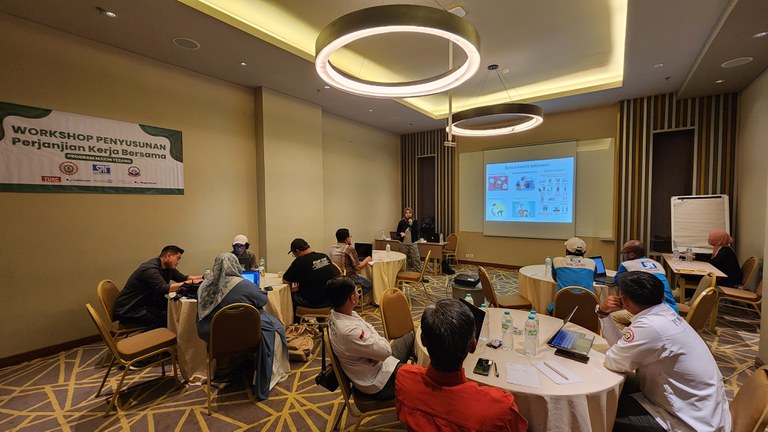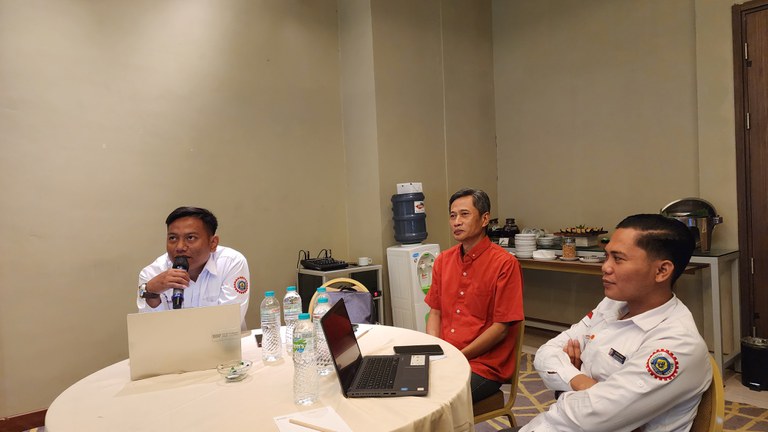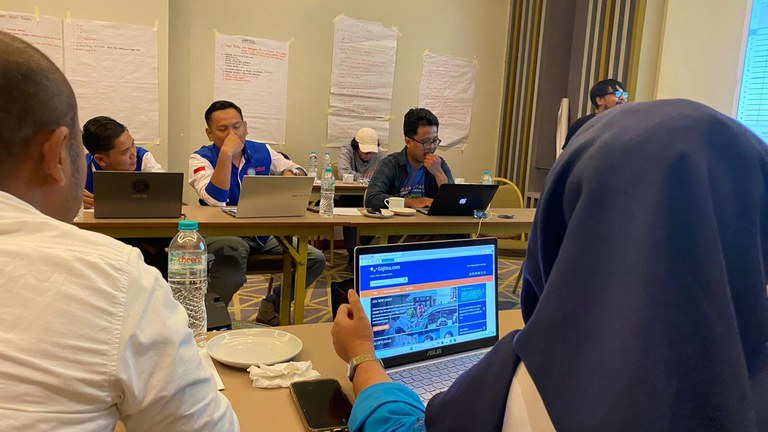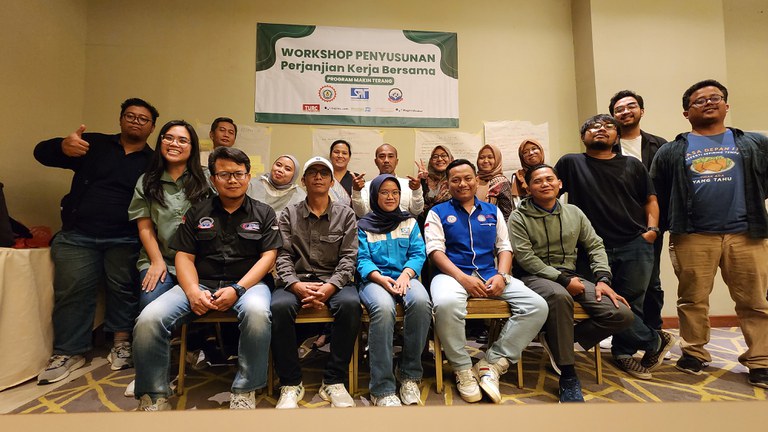From November 6-8, 2024, the Regional Branch Office (DPCs) of three partner unions under the Makin Terang program participated in a Training of Trainers (ToT) in Jakarta. This initiative aimed to enhance the capacity of DPCs in supporting collective bargaining at the factory level. Representatives from DPC TSK SPSI Purwakarta, DPC SPN Bandung and Purwakarta, and DPC Garteks Bandung in West Java attended the training.
Day 1: Understanding Context and Building a Foundation
The first day kicked off with introductions between participants and facilitators from Gajimu, TURC, and interviewers from SPN and TSK SPSI. After reviewing security protocols and ground rules, the training began with Rifzul from TURC providing an overview of the Makin Terang program. He emphasized the pivotal role of DPCs as regional units tasked with supporting collective bargaining and organizing workers at the factory level.
Lia from TURC followed with an analysis of Collective Bar agreements (CBAs) across 56 monitored factories. She outlined the various stages of CBA progress—renewals, extensions, ongoing negotiations, preparation phases, and cases of failed negotiations—highlighting the factors behind these outcomes.

Key Insights from Participants:
- Failed negotiations often stemmed from weak labor laws under the Omnibus Law, which diluted workplace standards.
- Financial concerns led many companies to deprioritize CBA negotiations, focusing instead on maintaining production.
- Internally, DPCs face challenges in uniting factory-level unions to stay engaged in the bargaining process.
During a SWOT analysis led by Ichan from TURC, participants mapped strengths, weaknesses, opportunities, and threats related to CBAs. This exercise helped them identify actionable strategies, such as leveraging strengths, minimizing weaknesses, and converting opportunities into advantages.
Venda from TURC introduced a data-driven advocacy model, where participants learned to distinguish between qualitative and quantitative data. One participant noted:
“Advocacy without solid data is impossible. Concrete data forms the backbone of our efforts.”
The day concluded with a session on gender-responsive collective bargaining facilitated by Rifzul. Participants explored gender injustice and how to incorporate gender perspectives in policy design, strategy, and collective agreements.

Day 2: Data Utilization and Strategic Planning
On the second day, Dela from Gajimu guided participants through analyzing the Gajimu CBA database, which houses 267 CBA documents collected between 2013 and 2023—108 from the TGSL (textile, garment, shoe, and leather) sector.
Many agreements addressed issues like paid maternity leave (215 CBAs), paternity leave (215 CBAs), and protections against workplace violence and discrimination.
Examples of standout CBAuses:
- PT Lezax Nesia Jaya: Female workers with premature births are entitled to three months of leave.
- PT Panasonic Manufacture Indonesia: Menstrual leave is granted for the first two days of discomfort.
- PT Century Textile: Employees receive a 120% holiday bonus after one month of continuous work.
Participants practiced using the database to benchmark and improve existing agreements. One remarked:
“The Gajimu database offers a wealth of examples that can inspire better CBAuses in our CBAs.”

The program also introduced a workshop tool for mapping advocacy strategies based on specific labor topics, using the Issue Inventory List (DIM) approach. This tool aids in developing data-driven CBA negotiation strategies while accounting for current legal frameworks and company finances.
The training wrapped up with participants presenting follow-up plans tailored to their organizations. These included:
- Transitioning from company regulations to collective agreements.
- Promoting female participation in negotiations.
- Strengthening CBAuses beyond the minimum legal standards, supported by gender and CBA education initiatives.
Participants lauded the training for equipping them with tools and strategies to better assist factory-level unions in collective bargaining efforts.

Related Articles:
Workshop for Interviewers 2024
Data-Driven Advocacy Workshops in Central Java, West Java, and Banten 2024
